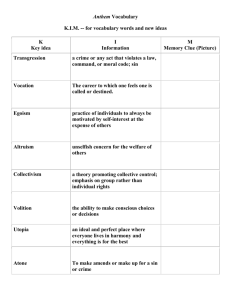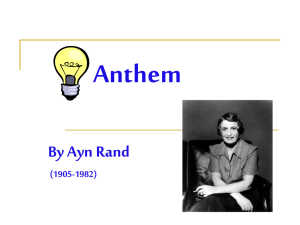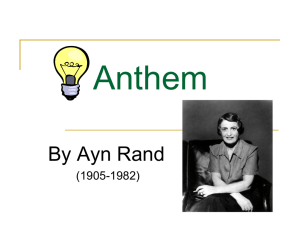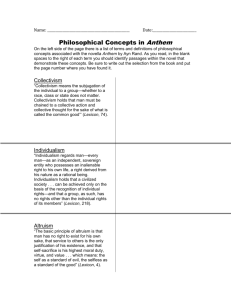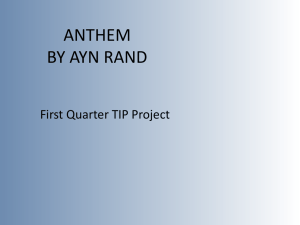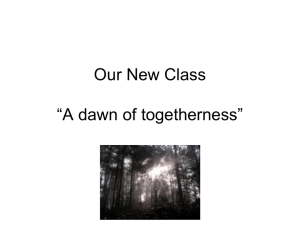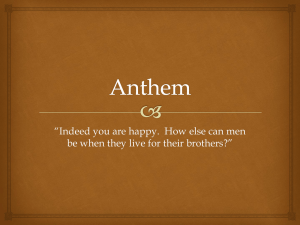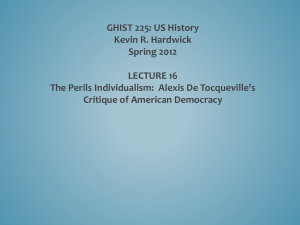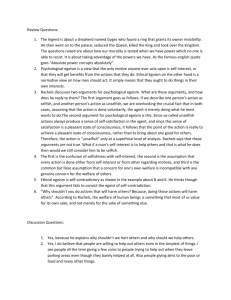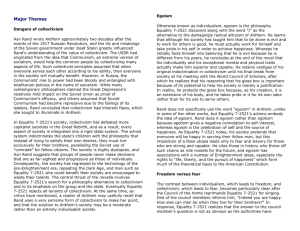Selflessness, Egoism and Free Will
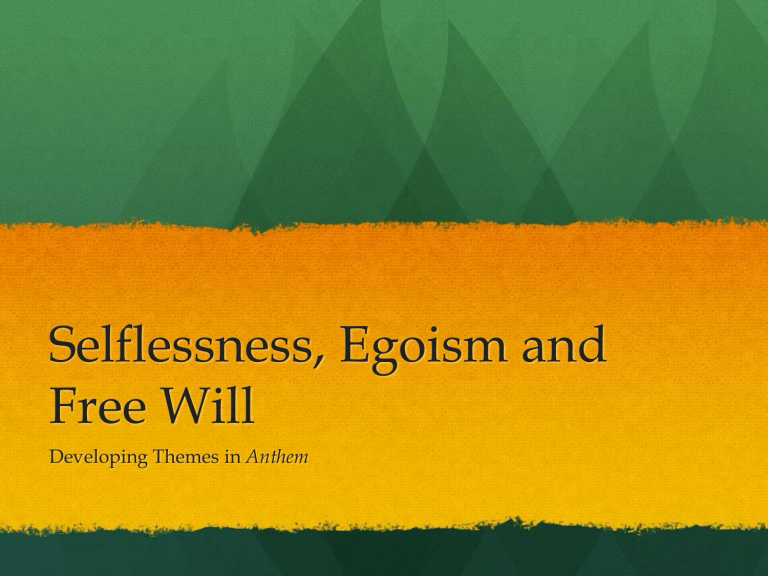
Selflessness, Egoism and
Free Will
Developing Themes in Anthem
Selflessness
Selflessness, the lack of self, is essential in a collectivist society
A selfless person in a collective society doesn’t disagree, has no independent thoughts, doesn’t ask questions and does nothing to set him/herself apart.
To be selfless one must abstain from thinking and obey one’s master
To survive in a collectivist society one must merge himself into the group by obliterating individual identity and individual thought
The result?
Anthem is an example of a society riddled with selflessness
Its citizens have no motivation, no ambition and no hope
Its citizens are unable to create anything
The society within Anthem provides no room for creativity and innovation
Egoism
Egoism is the concern with one’s own interests
Egoism means that oneself, rather than others, benefits most from one’s actions
Equality
“lives for his own happiness; he doesn’t sacrifice himself to others, nor does he sacrifice others to himself. The egoism he manifests is exactly what the leaders try to eradicate; ambition, wanting things for oneself, wanting to learn, wanting a career that makes him happy, loving someone, thinking for himself”
-Penguin Group
Anthem notes
Free Will
Free will is the belief that man can make their own choices, make up their own mind, make decisions and can direct their own lives by the ideas and values they adopt
In Anthem, Equality uses his own judgment to make decisions instead of the beliefs of his society.
Equality represents Rand’s view that man has the power to think and direct his own life.
Discussion Questions
Is it really a bad thing to be selfless?
Our society has a negative connotation for the word
“ego”. How do you feel about someone who has an
“ego”?
We assume Equality has free will. Do others in the society have free will also?
